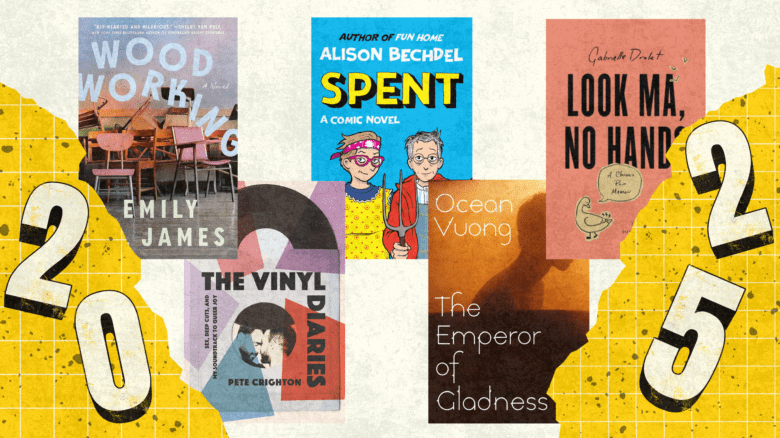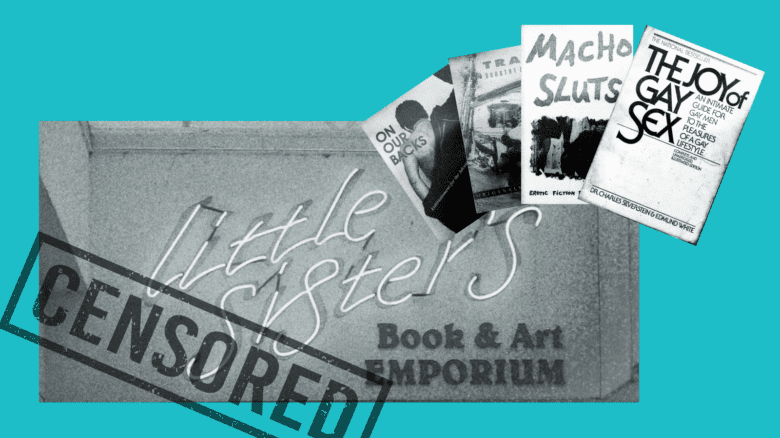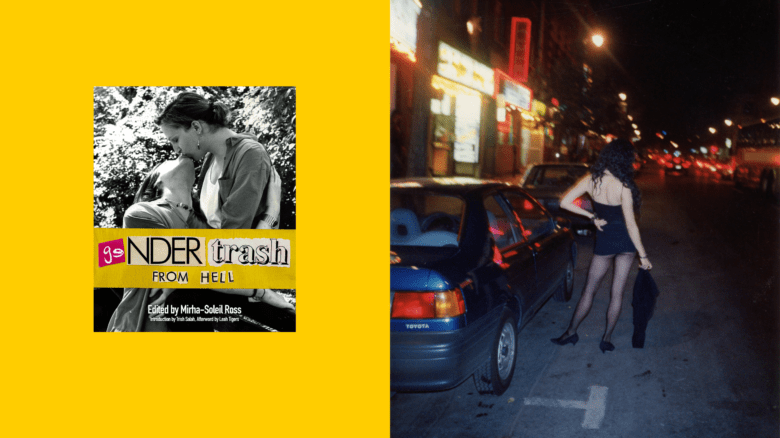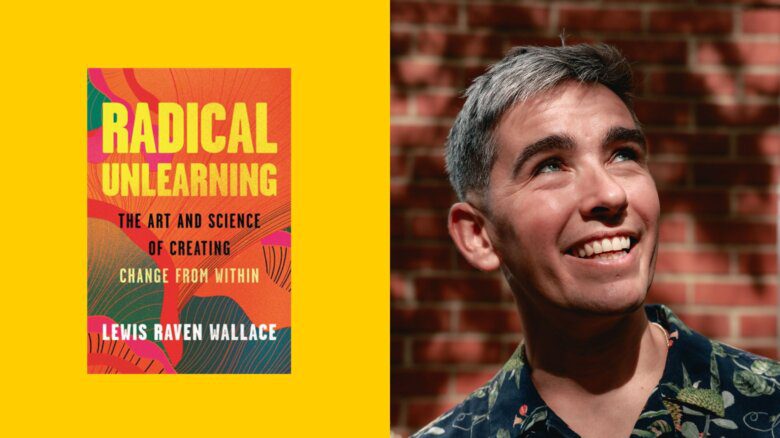So you think you’re Madonna’s biggest fan?
If so, you might be a bit shamed by the sheer, vast, epic and seemingly endless knowledge author Matthew Rettenmund has of the Queen of Pop. He first learned of the Material Girl in his teens, and almost immediately found himself deeply in love with her music and her image. In 1995, at the tender age of 25, he penned Encyclopedia Madonnica, put out by a major publishing house, St. Martin’s Press. The book earned solid reviews and, thanks in part to the popularity of its subject, did brisk sales.
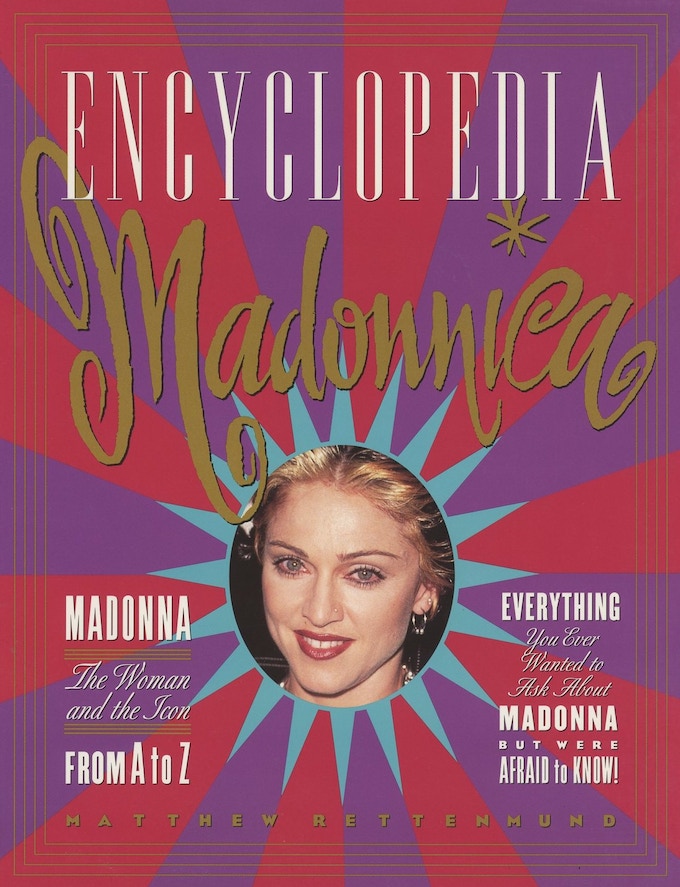
The encyclopedia format worked well for Rettenmund—he’s a witty and sharp cultural commentator and critic who can turn a pithy phrase. Under the entry “Irrelevant,” he writes: “People do not argue over the relevance of artists who are not relevant.” Smart, funny and often bitchy, this is the best kind of queer writing. The music site Pitchfork put Encyclopedia Madonnica at the top of its best-books-about-Madonna list in 2018 (no small feat, given that she has inspired a mini publishing industry all her own), declaring Rettenmund “a brilliant observer of pop.”
Since that first edition, the New York City-based Rettenmund has written two novels—Boy Culture (1995) and Blind Items: A (Love) Story (1998)—as well as a 2015 memoir, Starf*cker: A Meme-Oir. Boy Culture has since been adapted into a 2006 feature film directed by Q. Allan Brocka and a 2021 six-episode TV series, also directed by Brocka, that was a continuation of the film.
In 2015, Rettenmund released an updated version of his Madonna book, dubbed Encyclopedia Madonnica 20, and the following year issued a “Rebel Heart” updated edition.
Unable to get out of the groove, Rettenmund has again returned to his leading ray of light. With yet another edition of Encyclopedia Madonnica, out this month, he demonstrates he doesn’t understand the power of goodbye. His most prized updates this time out are new interviews with Madonna’s longtime publicist Liz Rosenberg and filmmaker Susan Seidelman, who directed Madonna in her 1985 big-screen debut, Desperately Seeking Susan.
I caught up with Rettenmund from his Manhattan home.
Do you remember where you were when you first heard Madonna?
When I first heard Madonna, I was being driven home from a Dungeons & Dragons session. “Holiday” came on the radio right after Shannon’s “Let the Music Play,” and I immediately loved it and assumed this was another Black disco singer I needed to know. I sought out the song and fell in love.
Why do you think Madonna, who just turned 64 last month, holds such significant appeal among queer men?
Queer men have always been transparently excited by divas of all kinds. I think historically we have related to women because while men, we could understand the idea of triumphing in a hetero man’s world. Discouraged from exploring our feelings by society, we could explore them via women, who were always encouraged to be emotional. So there were the comeback queens whose talent and determination we worshipped vicariously. [Changes voice.] “Poor Judy, she was the best of them all, but the world never understood her.”
But I think things began to change in the 1970s. Bette Midler openly discussed performing at gay bathhouses, and Madonna became, arguably, the first major diva to speak explicitly about what at the time was called “gay rights,” egged on by the AIDS emergency, which was radical since she was—unlike Bette—not only a provocative performer, but a genuine teen idol. I think the gay men who love her have an extra affection for her for being so outspoken so early on. It is a shame that because she is user-unfriendly, and because we as queer men are at least as judgmental as the mainstream when it comes to aging and looks, that some of her queer support has peeled off. It’s kind of self-loathing, really; a lot of the gay men I see dissing her now for being old and trying to act young are, well, old and trying to act young.
As for young queer men, they’re always going to be more aware of stars they came up with, and that counts against her. Then there are those who resent being told they have to love Madonna. They don’t, but some respect would be nice. But she does still marshal a huge queer base, and probably always will.
When did you first come up with the idea for this book?
My book is the first Google Search—but in print! Well, I was making notes on index cards when I was in Chicago, so probably 1992 or 1993. I was inspired by The Unabridged Marilyn: Her Life from A to Z [the 1990 book by Neal Hitchens and Randall Riese] because I thought Madonna and Marilyn shared a similarly information-saturated place in our culture, and an A-to-Z catalogue felt more sensible than a bio with filler. I liked the idea, also, because fans are completists, so we want to know all the tidbits and minutiae, not just the major, obvious stuff. I also loved the idea of including offbeat, random factoids. It’s po-mo Mo. Does anyone remember that pre-Madge, she was Mo? Anyone? I pitched it at an editorial meeting when I worked at St. Martin’s Press, and though it took some persuading to convince the powers-that-were that she would still be famous by the time the book came out, my pitch resulted in an offer, and my publishing career was born. They published it right after Ilene Rosenzweig’s The I Hate Madonna Handbook—counter-programming.
In writing entries for the new edition, was there anything you found especially revelatory?
I had to go over every entry to make sure it was refreshed, and with all that’s happened—and all she’s made happen in her career—in just the past six, seven years, it was revelatory how dated some of the older entries seemed. Everything is now up to date through September 1. I think fans will be most interested in Liz Rosenberg’s first Madonna-centric interview in 30 years. Not since the Sex book came out has Liz talked in this way about her former client, and she walks us through some of Madonna’s most memorable scandals and controversies.
When did you first hear from Madonna? She must appreciate your commitment to her.
Madonna is a very punk figure, even if most of her output is pop. I don’t think for a second she is warm and fuzzy toward anyone who writes books about her and interprets her. But thanks to her publicist, Liz Rosenberg, I received a signed copy of my book when it first came out in 1995, as well as a signed copy of a magazine I devoted to Madonna. Since then, I was able to pose for a photo with Madonna, ask her a question on a red carpet and interview her as part of a group of queer journalists when she released [the 2011 film she directed] W./E.—we were knee-to-knee. We aren’t pen pals, and even though she sees me at events, I don’t really think I jump out in her mind the way some of her most colourful fans do. I also think Madonna’s the kind of figure you’d sort of be thrilled to get the finger from. If Céline Dion gave you the finger, your heart would sink. If Madonna did it, it would be so cool. I think I’m more likely to get the finger than to get a thank-you note.
So many times people have said she is over. Yet she keeps reinventing herself. Why do you think some people are eager to count her out or down?
Madonna is so hated because she is so loved. The biggest stars are both. Plus, instead of playing nice and singing disco and ballads and always dwelling on her past, she continues to explore new genres and is pushing “sexy” past 60, and has never not been extremely outspoken on a variety of topics. She’s a bit of a free-speech absolutist, so champions the right of Dave Chappelle and Kanye West to speak their minds, while asserting that she disagrees with them. She loves LGBTQ people and feels she is part of our tribe, so never misses an opportunity to plug us in the mainstream media. She dates men 30 or 40 years her junior. She never hesitates to speak out on abortion rights or to express her disdain for Trump. So there will always be a huge number of people she rubs the wrong way, and they are waiting patiently for her to die. Then, many of them will say they always liked her.
Madonna made a splash with her first film role, in Desperately Seeking Susan, though since then, many have felt she’s had a lacklustre film acting career. Do you think she’ll make another great film?
No, she won’t act again, not in a major way. But she wasn’t great just in Desperately Seeking Susan. I don’t think Madonna is a naturally gifted actress you can always count on to deliver, but she was great in Dick Tracy, A League of Their Own and Evita, as well as in little-seen films like Bloodhounds of Broadway and especially Dangerous Game. The problem was she always had too much control for people around her to guide her or criticize her, and she was typically such a big star she was the star of her movies. So when she failed, she failed spectacularly, and people probably harped on her shortcomings inordinately. For example, I think the feature she directed, W./E., showed promise. When I saw Oscar Isaac this year and mentioned it, he was surprised. I told him I thought it was unfairly maligned because of who the director was, and he said, “Me, too.” Madonna could still direct a film, though.
She is attached to direct her visual autobio from her own co-written script, but since Julia Garner was offered—and never yet accepted—the role of Madonna, I am losing hope this film will happen any time soon, if ever. Here’s hoping! It would be a lot more interesting, in my opinion, than the brand-building exercises devoted to Queen and Elton John. But if I had any say, I would encourage her to be an executive producer with approval over content and to let an experienced director interpret her story.
I actually reviewed W./E. for Xtra when it first came out, and I think I was one of the only critics who genuinely loved the film and thought it was well done.
It was not terrible and she sure had a keen casting eye.
Some have been a bit alarmed by some of the recent cosmetic surgery Madonna’s had done.
Well, first, some of the alarm is over filters that the media reports as being representative of how she looks. If you look at candids, I think she looks good, and more like herself lately. I think people are hard on her for aging, for not remaining a lithe dancer even though she had hip replacement surgery that was devastating on her body and, paradoxically, for trying to look younger.
“I don’t think Cher is in the same league as Madonna, artistically. Cher is awesome, an icon, funny, candid, articulate, quick-witted, but her musical output is camp.”
Probably we should accept that however Madonna looks at any given moment is how Madonna looks, and be thrilled she is with us and working, unlike Prince, Michael Jackson, George Michael, Whitney Houston and so many more. There is a zero percent chance that had Madonna never touched her face or body with cosmetic surgery these people would be cheering her on for being real. They’d be mocking her for looking bad, period.
You’re a seriously professional fan! Anyone ever suggested you’ve gone overboard?
Sure, people insult me all the time for my fandom, usually when they’re trying to come back at me on some unrelated topic. I think my intellect and accomplishments speak for themselves; I’m just someone who thinks the best way to be happy is to unapologetically embrace what gives you joy, whether it’s horror movies, obsessing over pop stars, fashion, etc. Also, my obsession is at least resulting in a museum-worthy archive. I’ve always been fascinated with fandom and archiving ephemera, so it makes sense I’d go down this path.
When comparing Madonna and Cher, I think one of the things I appreciate about Cher is that she doesn’t take herself too seriously. She knows being Cher is kinda crazy. I find Madonna can take herself too seriously.
Yes, Madonna can be pretentious and impossible, but I love that she is like that. I think the greatest artists are convinced their shit is flawless, or at least are unafraid to try things that could bellyflop, and then will think the public was wrong. I don’t think Cher is in the same league as Madonna, artistically. Cher is awesome, an icon, funny, candid, articulate, quick-witted, but her musical output is camp. She is endearing, but aside from several moving film performances, I really never got the impression she saw herself, musically, in the same way Madonna, Michael Jackson and others do or did. Cher never sought to express herself through music in that way. There are artists who are “working to fail” creatively, and there are artists who are chasing approval and playing the game. I have more respect for the former, even if I, of course, love friendly stars who embrace being legacy artists, too.
Meeting Cher was genuinely exciting, even if she doesn’t know what the fuck MDNA is. Madonna is not always cuddly, but she’s up there with Michael Jackson, Prince, The Beatles and Elvis Presley—she is one of the greats. And they’re not always earthy types.
Do you ever see a day when you might possibly tire of all things Madonna?
Sure, I could stop on a dime if she went Republican. But if you mean just becoming bored of her, I’m kind of too deep in and am now sort of a student of whatever she does, even when it isn’t for me. Also, I find it is easy when you’re a mega-fan to overlook missteps, because even if Madonna were to do nothing else, or even if she were to do things that bored me to tears, she’d still be the person who gave us “Into the Groove,” “Vogue” and ”Hung Up,” who knew Keith Haring, Jean-Michel Basquiat, Tupac and Warhol, who championed nudity and sex in the age of AIDS, who kissed Britney Spears and that other lady and who slinked through Desperately Seeking Susan with—as New Yorker film critic Pauline Kael noted at the time—“dumbfounding aplomb.” So I’ll always find Madonna fascinating because Madonna 1982 and Madonna 2022 are the same person.
I supported Bette Davis even after White Mama, so I guess loyalty is not one of my weaknesses. But also, as you said earlier, it’s good not to take yourself too seriously, so I do find it funny that I’m supposed to be a Mr. Madonna—maybe because I have never questioned that I’m a lot more than just that.
This interview has been edited for length and clarity.
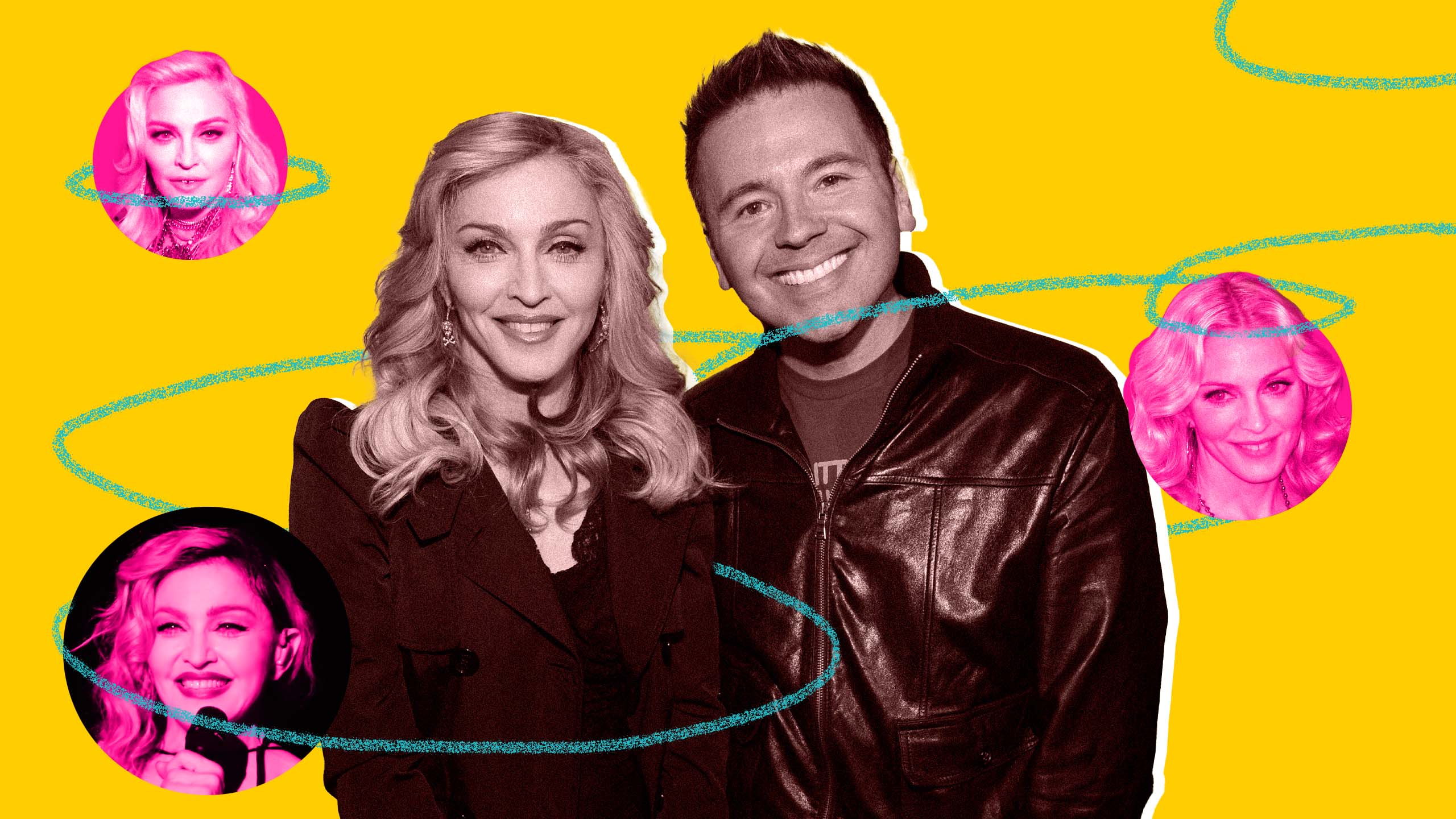
 Why you can trust Xtra
Why you can trust Xtra